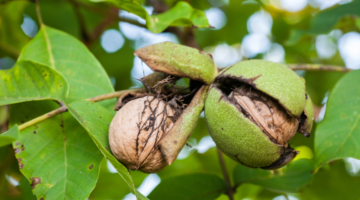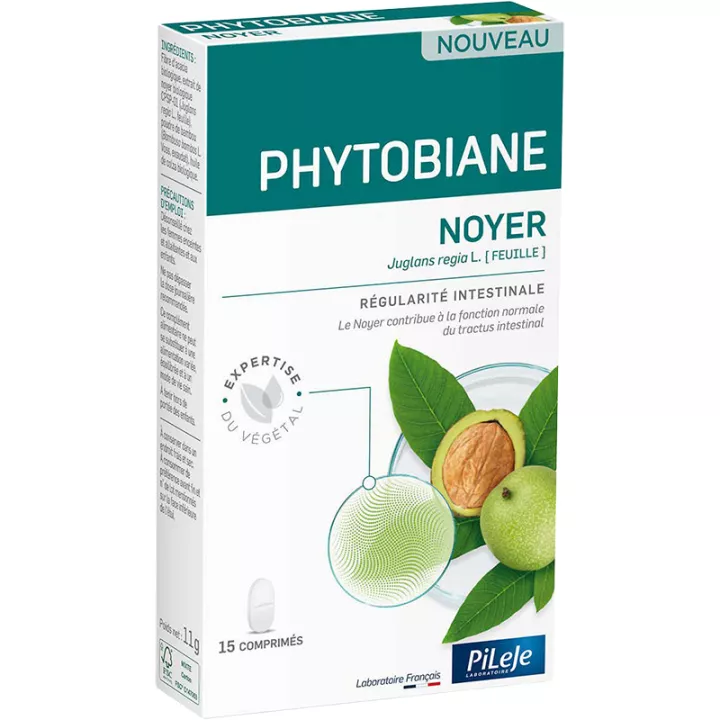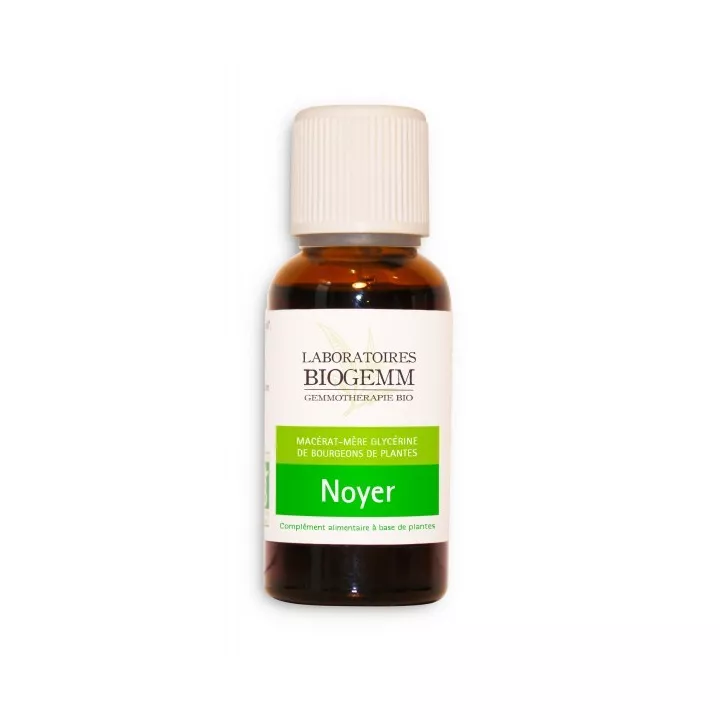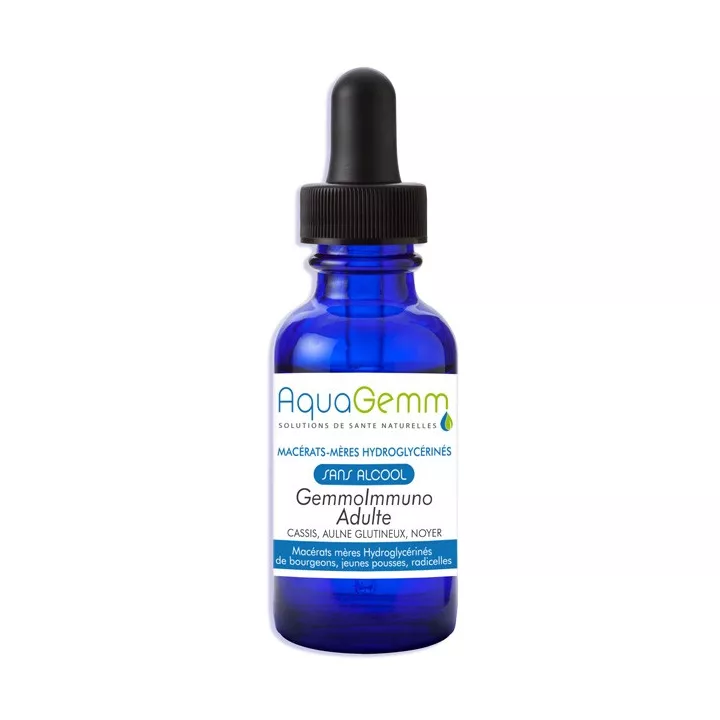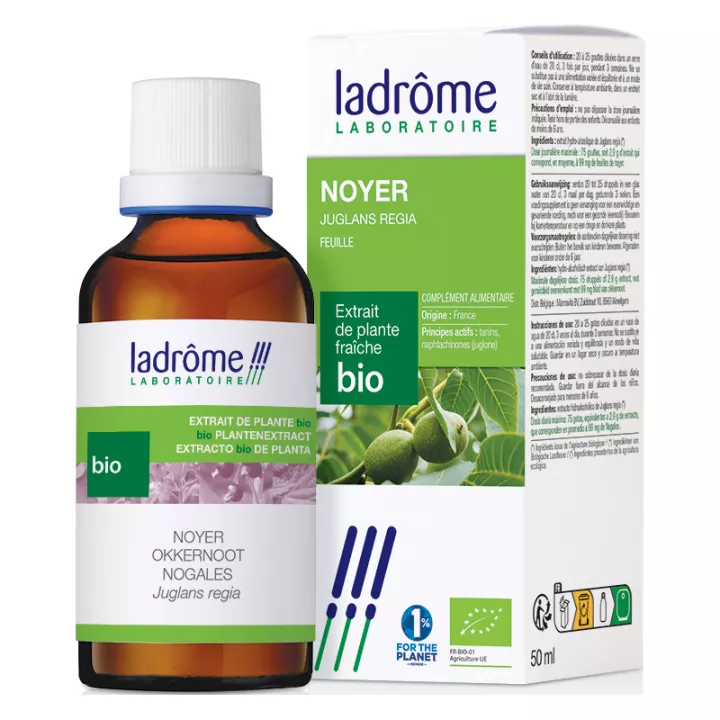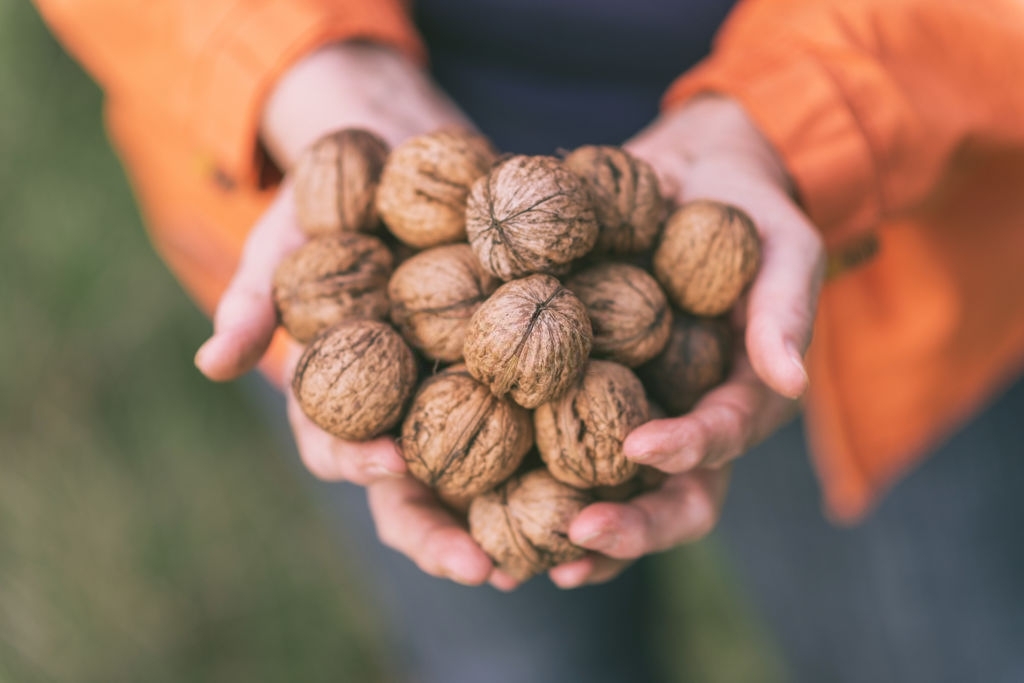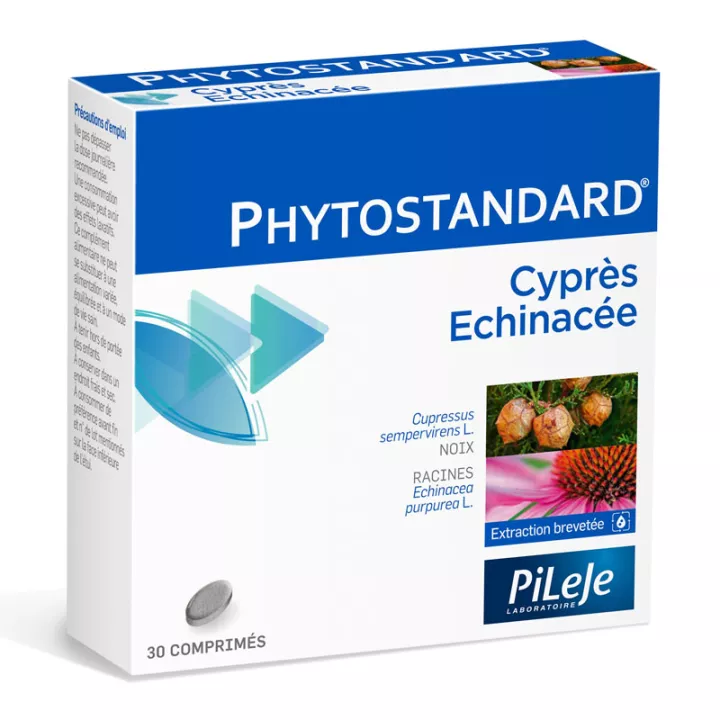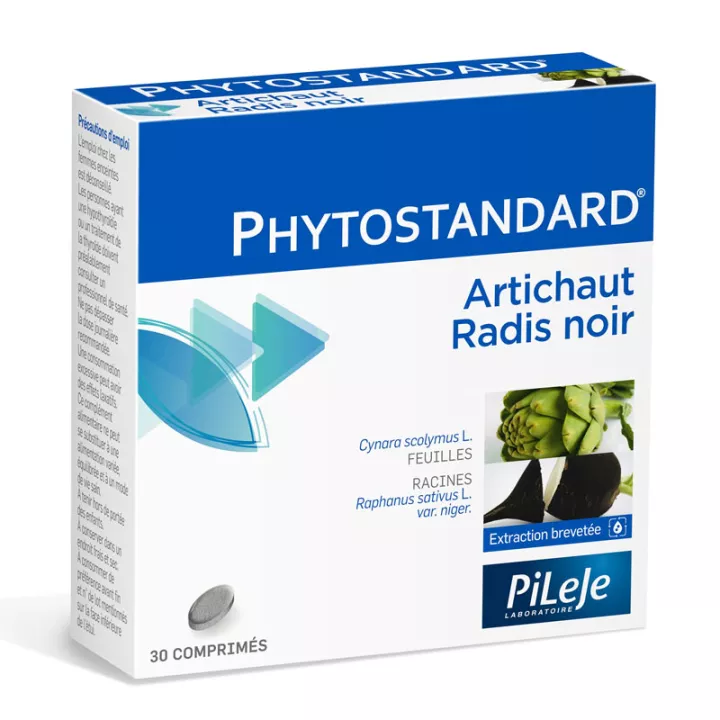What is Phytobiane Noyer used for?
For over 20 years, Laboratoire PiLeJe has been developing a unique expertise in plants, combining traditional plant knowledge with the latest advances in scientific, agronomic and clinical research. The plants we use are rigorously selected according to exacting specifications, guaranteeing their purity, efficacy and traceability. This know-how is fully expressed in the Phytobiane range, in which the walnut tree is an emblematic example of the balance between science and nature.
The walnut (Juglans regia L.) is a majestic tree that fascinates as much for its noble wood as for its leaves, which are rich in active ingredients. In phytonutrition, the latter are of particular interest. Their composition in tannins, phenolic acids and flavonoids gives them a synergistic effect on the body. These natural substances help maintain intestinal comfort, supporting regular, harmonious transit. Walnut acts as a precious ally for digestive function in the event of temporary imbalances.
Walnut leaves also have powerful antioxidant properties, thanks to their ability to neutralize free radicals. In vitro studies show that this action is even superior to that of certain benchmark antioxidants such as BHA or vitamin E (α-tocopherol). This protective effect helps preserve cells from oxidative stress, boosting the body's overall vitality and contributing to better digestive resistance to external aggression.
On the antimicrobial front, walnut leaves are distinguished by their anti-infectious properties. They limit the proliferation of certain pathogenic bacteria such as Bacillus cereus and Staphylococcus aureus, often responsible for digestive disorders. They also have a natural antifungal action, useful for preventing microbial imbalances likely toalter intestinal health. This dual protective effect makes them an ideal aid in restoring a healthy digestive balance.
The tannins present in walnut are renowned for their anti-diarrheal effect. Their astringent power helps tighten intestinal mucosa, reducing excessive secretion of water and electrolytes, while limiting digestive spasms. These combined actions help relieve intestinal discomfort, particularly in cases of diarrhea of infectious origin. In this way, Walnut supports more serene digestion and long-lasting intestinal comfort.
The walnut selected for Phytobiane comes from certified organic orchards in the Ardèche region, grown without the use of synthetic chemicals. The leaves are harvested when ripe, when they are richest in active ingredients. Thanks to the exclusive extraction process of Complexe Phyto-Signature PiLeJe (CPSP), each extract retains its full biological potential. This attention to detail enables Phytobiane Walnut to offer a natural, complete and effective solution to promote intestinal regularity, protect the digestive mucosa and support intestinal flora.
To complement the benefits of Walnut, Herbalgem Walnut mother macerate 30 ml can be recommended to reinforce intestinal balance and optimize digestive comfort naturally.
How to use this Walnut supplement?
Directions for use
Take 1 to 2 tablets a day, with a large glass of water, preferably during a meal for better assimilation of active ingredients.
Give your opinion on the advice for use and dosage of Phytobiane Noyer with our partner Avis Vérifiés after your purchase.
Precautions for use
- Not recommended for pregnant or breast-feeding women, or for children.
- Do not exceed the recommended daily dose.
- This dietary supplement is not a substitute for a varied, balanced diet or a healthy lifestyle.
- Store in a cool, dry place, away from light.
- Best before the date indicated on the box.
- Keep out of reach of young children.
What are these Regular Transit tablets made of?
Ingredients
Organic Acacia Fiber, Organic Walnut Extract CPSP-01 (Juglans Regia L., Leaf), Bamboo Powder (Bambusa Bambos L. Voss, Exudate), Organic Rapeseed Oil.
Nutritional analysis
| Average analysis |
For 2 tablets |
| Organic Walnut extract CPSP-01 |
560 mg |
| of which total flavonoids expressed as hyperoside |
28 mg |
Available at
Box of 15 tablets, available at the best online price.
Expert advice
In naturopathy, walnut is often associated with cures designed to cleanse the intestinal flora and strengthen the digestive mucosa after a period of imbalance (antibiotics, stress, dietary changes...). To amplify its effectiveness, it can be combined with a diet rich in soluble fibers (legumes, oats, psyllium) and good daily hydration.
A sufficient intake of natural probiotics (yoghurts, kefir, miso) also helps restore intestinal symbiosis. Finally, a balanced lifestyle - gentle physical activity, stress management and mindful eating - remains the best ally for a harmonious and durably soothed digestive system.
How common are functional intestinal disorders?
Functional intestinal disorders (FID) are the most common type of intestinal disorder. They affect 15-20% of the population, and are more common in women than in men. Symptoms generally begin before the age of 30. Not all sufferers seek medical advice. Synonyms include functional colopathy and irritable bowel syndrome.
